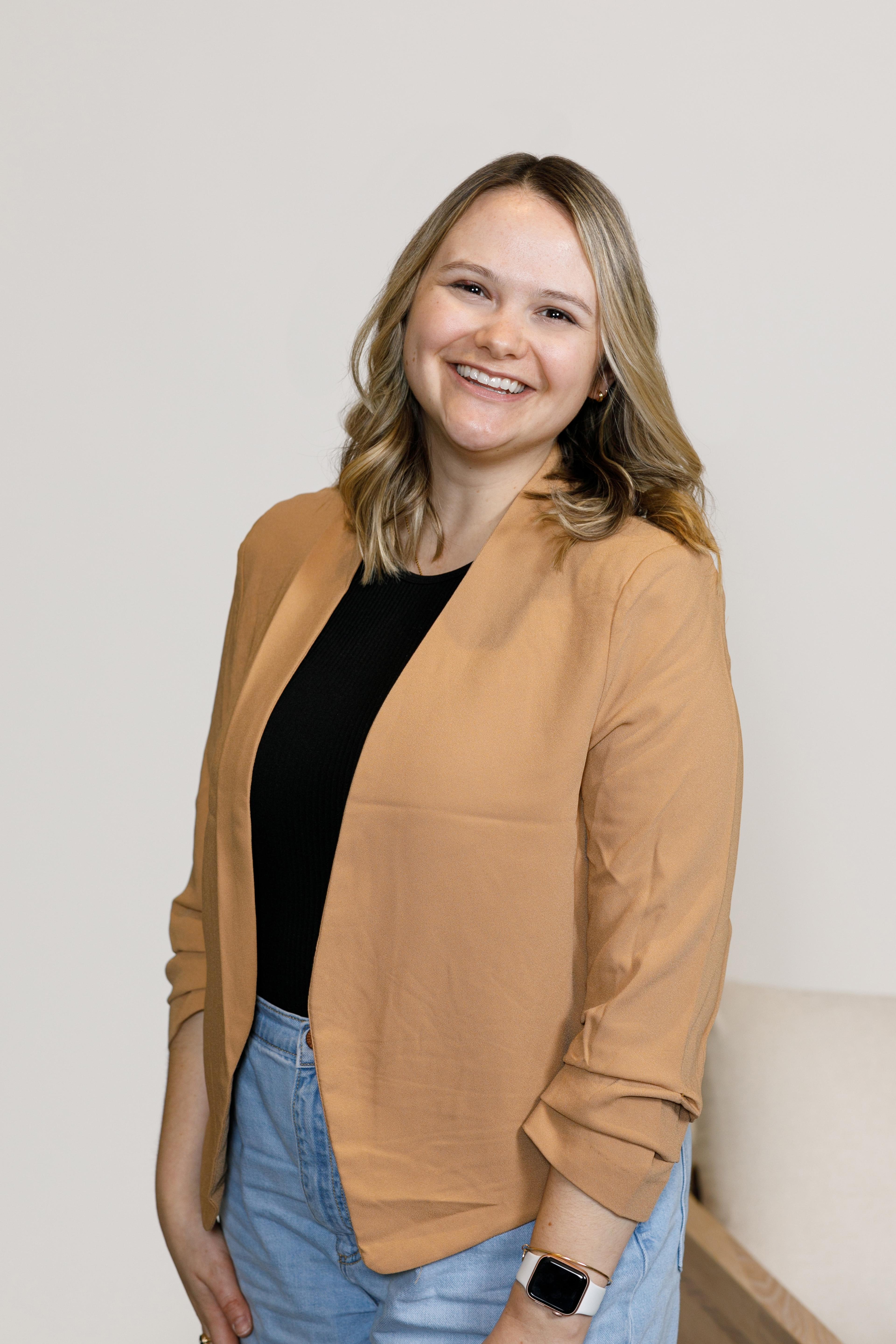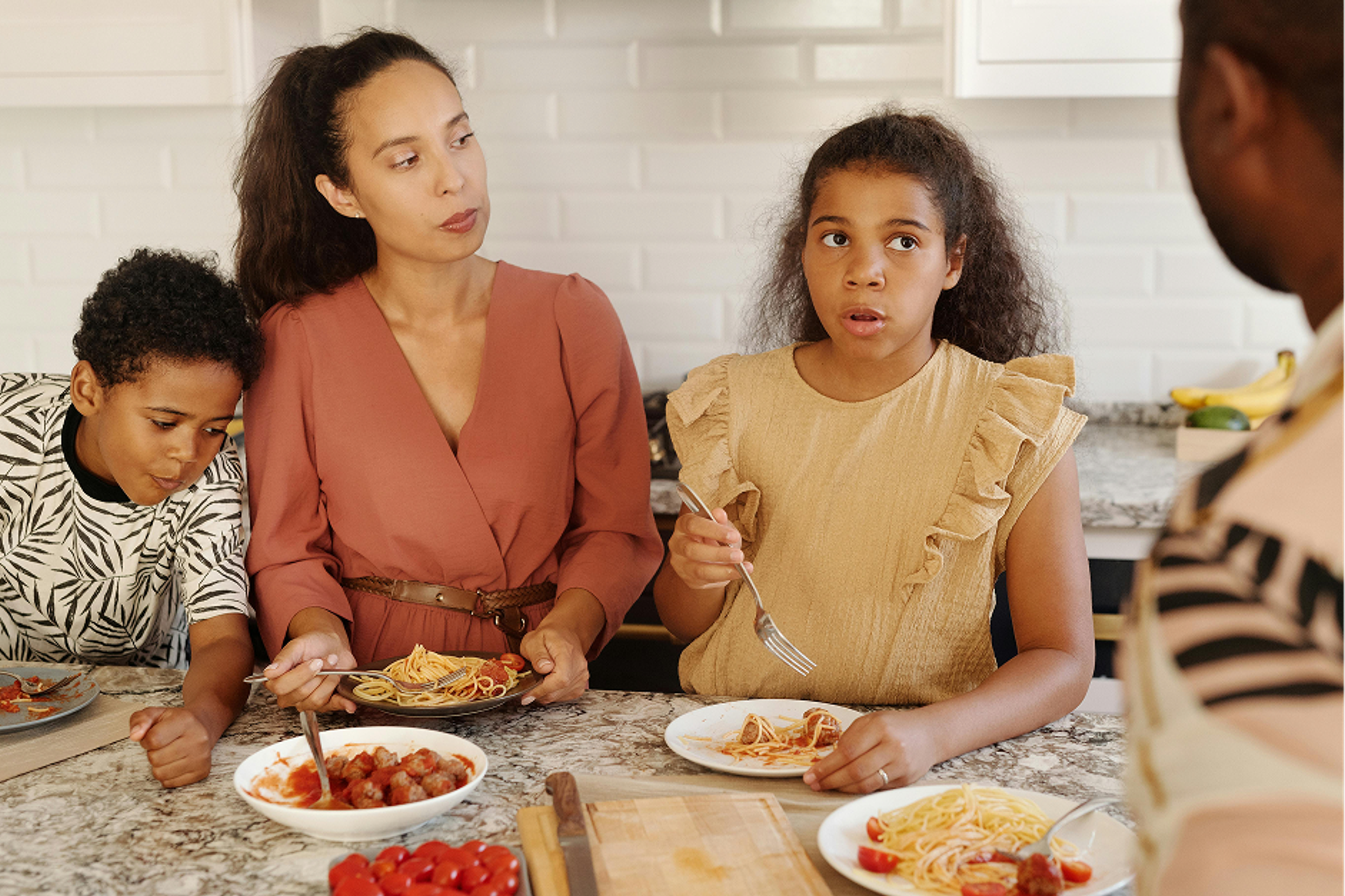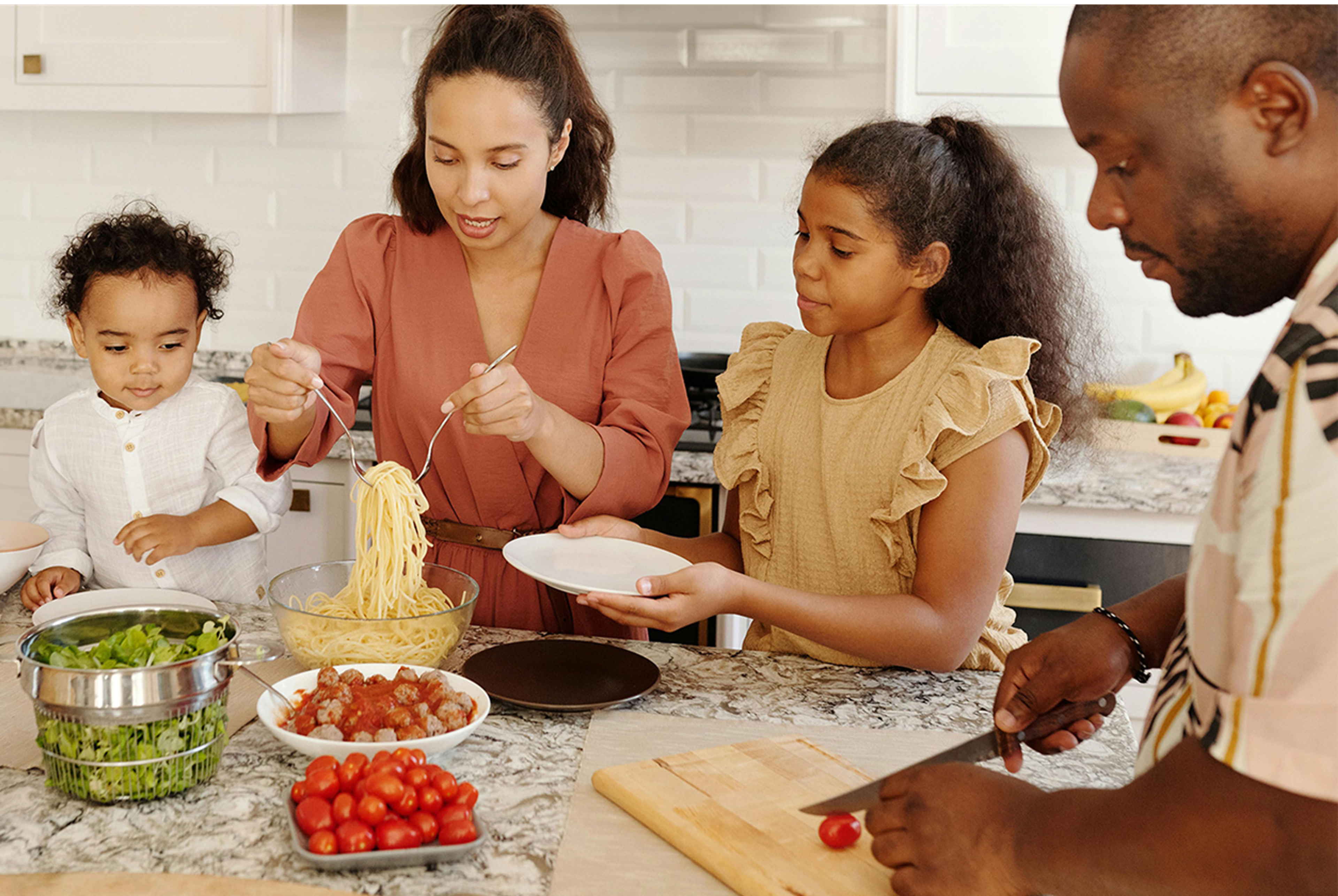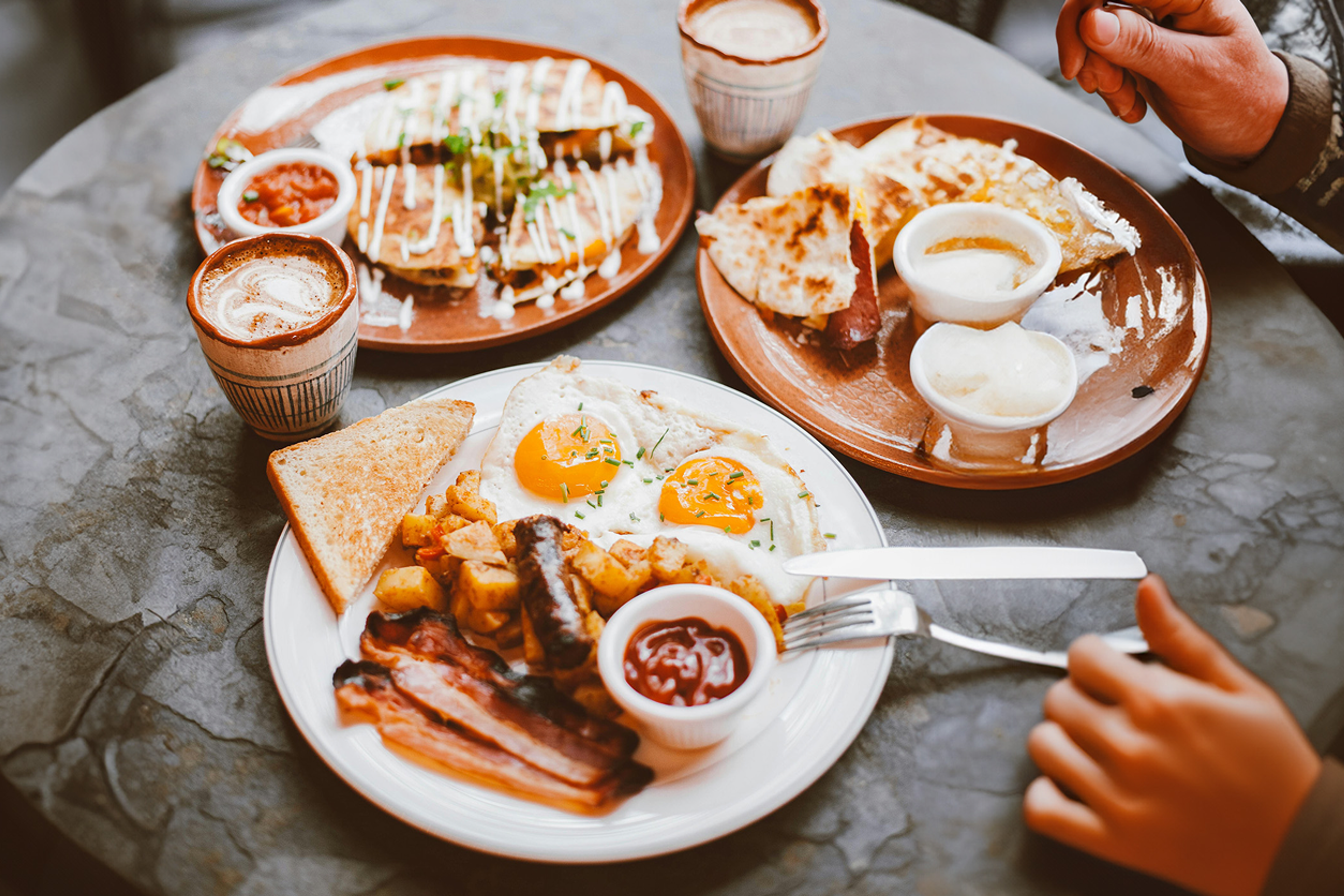


I’ll never forget when a guy I was newly dating invited me over for dinner, saying, “I’m making steak and salad—no carbs tonight.” Then, there was the guy who, over a delicious Italian dinner, confided in me that his biggest fear in life was “getting fat.”
At the time, I was several years into my eating disorder recovery, so wasn’t triggered by their disordered actions and words, but had I been earlier in recovery, they certainly could’ve had a negative impact on my healing process. Regardless, I still found such situations and conversations tricky to navigate and they became barriers to developing deep connections necessary for lasting relationships. Unsurprisingly, neither person turned out to be my life partner.
By itself, “Dating can be really hard and it’s so vulnerable,” says Equip dietitian Dani Castellano, RD, CEDS. While people of all ages date, eating disorder onset often coincides with a period of life when dating is especially common—in young adulthood—and dating in recovery can be especially challenging to navigate.
Today, we’ll explore how diet culture and other common factors can make dating tough on the road to eating disorder recovery, and strategies to help you feel as prepared as possible before heading out on your next (or maybe first) date.
Why dating can be tough when in eating disorder recovery
Dating in recovery can be difficult for a myriad of reasons—here are some of the most common obstacles:
Navigating diet culture comments
Unfortunately, most of society is steeped in diet culture, so chances of going on a date with someone who has weight bias (negative attitudes and beliefs about others because of their weight) or uses disordered food behaviors (e.g. restricting carbohydrates), are relatively high.
“When meeting someone new you may also be exposed to diet culture language such as ‘good’ vs ‘bad’ foods, calories, mention of diets or dietary restrictions, or self-deprecating talk that can feel triggering,” says dietitian Sydney Engberg, MS, RDN, LD, CPT. “Seemingly innocent commentary such as checking in regarding what someone had for a meal, commenting on how much one eats, talking about one’s own nutrition, fitness, and weight goals are some things patients have shared that are triggering,” Castellano adds.
Getting your needs met
One of my clients new to recovery had a hard time getting her nutrition needs met when eating around the person she was dating, because he regularly made diet-based comments about his own food and negative comments about other people’s bodies. Yet, even if your date seems to have a healthy relationship to food, it can still be tough sticking to your meal plan or making sure you’re staying true to your recovery while dating. “Because dating and relationship building often occurs over food or drink, it can increase food-related anxiety about what to order, how much to eat, or just feeling self-conscious eating in front of someone new,” Engberg explains.
Additionally, diet culture has sexist roots, which is exemplified in research showing college-aged people may consider there to be acceptable “dating foods” and off-limits “non-dating” foods, including more “feminine” foods (e.g. salad) and acceptable for those identifying as females, and foods (e.g. steak) that are more “masculine” and acceptable for those identifying as males—making it all the more difficult to feel rooted in recovery when first impressions feel particularly important.
Dealing with body image
The current dating world is largely found online, which can further complicate eating disorder recovery. In fact, research links dating apps to poorer body image and disordered eating. One study of young adults and another study of adults between ages 18 and 65 found that dating app users may be more likely to engage in disordered behaviors than non-users. Another study of sexual minority men (those who differ from the cis-heterosexual society) linked dating app usage and poor body image, and eating disorder behaviors, like diet pill and laxative use and self-induced vomiting.
Psychotherapist Amanda Marks, LPC, CPCS, says poor body image is an issue several of her clients face while dating, on and off the apps. “Most of my clients are concerned that they will be judged for their appearance, regardless of their actual body size,” she says. “Those in larger bodies are fearful about being someone's fetish.”
Additionally, poor body image can extend into sexual intimacy while dating. In fact, research shows that women with eating disorders have higher levels of self-consciousness about their bodies during sexual activity which is associated with sexual dissatisfaction.
Being embarrassed about recovery
In my practice, I’ve worked with several clients who (understandably) need support in sharing about their eating disorder and recovery with people they’re dating, because they feel especially vulnerable to judgement. Since eating disorders are often (wrongly) stigmatized and largely misunderstood, it can feel scary to explain to a new person about your journey and needs. Personally, I went through a time in my recovery when I was too ashamed of my eating disorder history to share my past struggles with anyone new, because I was afraid they would see me in a negative light or even outright reject me.
Strategies for navigating dating while in eating disorder recovery
Despite all these challenges, dating in recovery is not only possible, it can also be fulfilling, exciting, and even fun! The strategies below can help you get there.
Make sure you’re ready
First and foremost, take a moment to be honest with yourself, so you can gauge whether it’s time to date or not. “I always encourage my clients to have their own identity firmly rooted in recovery before beginning to date,” Engberg says. “The saying, ‘You can’t pour from an empty cup,’ really applies here.” She suggests asking yourself questions like, “Can you show up authentically on a date right now, without feeling like you have to change or hide parts of yourself?” and “Do you feel comfortable being honest about your needs, preferences, and boundaries in a dating situation?”
If your answer is no and you think you need more time in recovery before dating, consider using your desire to date to fuel your recovery. “If you value connection and want to be able to go on a date and eat the ice cream cone,” Castellano says, “that’s a great reason to keep working on your recovery goals,” like conquering your fear foods. Full recovery enables you to be the most genuine version of yourself and thus to form genuine connections with others.
Set boundaries
If you’re on a date with someone who makes diet culture comments, boundaries are key to making your experience (and potential future dates) enjoyable and aligned with your recovery. However, boundaries can feel tricky, especially in the moment with someone new.
Depending on your comfort level, there are a few ways to set them. Castellano suggests gently redirecting the conversation to a different topic or saying something like, “’I’m not really into diet culture and would love to talk about x instead’ or ‘I’m actually going through some things that make these topics pretty difficult for me to discuss and for right now it’d be helpful if we didn’t talk about food or bodies.’”
Engberg encourages clients to rehearse what you would say in an uncomfortable scenario to take care of yourself. “Remember, you get to decide how much you share,” she adds. “Boundaries are about protecting your peace, not convincing others to change their mindset.”
Prioritize your needs
One of the best ways to make sure your food and nutrition needs are met on dates is to gently plan and prepare beforehand. For example, I ended up bringing a carbohydrate source (potatoes) as a side to the steak and salad dinner mentioned earlier. It’s completely acceptable to bring food along to round out a meal when you know a whole food group will be missing. Honestly, I can’t recall if my date ate the potatoes or not—what was important was that I got a balanced and satisfying dinner. “Try your best not to compare what’s on your plate to what the other person is eating because it is unlikely you have the exact same nutrition needs day in and day out,” Castellano explains. She also encourages her patients to speak up about their needs. “Normalize that it’s okay to advocate for getting your needs met,” she says. For instance, “[you might] need to take a break from what you’re doing to eat a snack.” Check out these tips for navigating restaurants in recovery.
Plus, Engberg suggests working to stay connected to hunger and fullness cues as much as possible. “From butterflies and nerves to different schedules, it’s easy to get distracted while dating but skipping meals or ignoring your body’s needs can be a slippery slope.” She recalls her first date with her current partner where she ordered food when he wasn’t eating. “That moment was a reminder that I don’t have to shrink myself (literally or figuratively) to be worthy of connection,” she says. “By allowing myself to eat in front of him, I was able to remain present, enjoy the conversation, and communicate (without even realizing it at the time) that my needs and wants are important.”
But what if you do lose connection to your body amid dating? Lean on your meal plan or practice what I call “self-care eating,” or eating when hunger is absent because it’s been over three or four hours since your last meal or snack. “I always recommend keeping a snack in your bag or car and planning dates that allow for eating opportunities,” Engberg adds. She encourages clients to have a game plan if eating at a restaurant feels hard. “This might mean reviewing the menu ahead of time or selecting a setting where you feel more comfortable,” she says. “Also remember that meeting your needs doesn’t just start when you arrive on your date—make sure that you are nourishing adequately throughout the day so you can show up energized and present.”
Tend to your body image
Working on your relationship to your body is necessary to date healthfully in recovery. Marks recommends her clients work on body image before and during dating, since “it's often based on the perception of appearance and to make sure they’re not projecting any of their own issues or insecurities on someone else.” She recommends a few techniques, including “reminding yourself that you are much more than your appearance—that you are more than a body, focusing on body acceptance and neutrality, wearing clothes you feel comfortable in, and accepting compliments [instead of] deflecting or minimizing them.”
While dating, clarifying your values and evaluating your date’s values can help you decide whether you want to continue spending time with them. Marks suggests asking yourself some questions: “If someone highly values a particular physical appearance, or physical appearance in general, is that someone that you want to be with? How will their values and behaviors impact you? Have you worked through your own body images to be true to yourself and confident?”
Improving body image takes time and practice, and working with a therapist can make a significant impact. “It can be exhausting but it's something that we have to keep doing as insecurities and issues will come up,” Marks adds, “and we have to be prepared to address those issues.”
For supplemental support, some of my favorite body image books are “More Than a Body,” “The Embodied Healing Workbook,” and “Reclaiming Body Trust.” You can also explore Equip’s free body image course, Freeform.
Practice authenticity
Forming meaningful relationships takes emotional risk and requires authenticity. So, being up front about your eating disorder recovery and needs is important in dating. However, how, when, and with whom you share is at your discretion. There’s no need to share your eating disorder history on a first (or second or third) date, unless you feel compelled to do so, until there’s trust and safety established between you two. When you’re ready to share, the right person for you will respond with compassion and respect.
Personally, one of the most rewarding parts of my eating disorder recovery has been—after years of dating—finding my way to my husband, who has always seen and accepted me for who I truly am (and who loves his carbs). It’s entirely possible to date and find love while in eating disorder recovery. However, it’s imperative that you’re far enough along in your healing process to be ready for a genuine and healthy relationship. If you need help getting there, reach out for professional help from a therapist and dietitian to support your process.
- NIMH» Eating Disorders. (n.d.). Www.nimh.nih.gov. https://www.nimh.nih.gov/health/statistics/eating-disorders#part_2569
- Europe, W. H. O. R. O. for. (2017). Weight bias and obesity stigma: considerations for the WHO European Region. Iris.who.int. https://iris.who.int/handle/10665/353613
- Why Do We Say “Diet Culture” Instead of “the Patriarchy?” (2020). Psychology Today. https://www.psychologytoday.com/intl/blog/eating-mindfully/202007/why-do-we-say-diet-culture-instead-the-patriarchy
- Amiraian, D. E., & Sobal, J. (2009). Dating and eating. Beliefs about dating foods among university students. Appetite, 53(2), 226–232. https://doi.org/10.1016/j.appet.2009.06.012
- Blake, K., Portingale, J., Giles, S., Griffiths, S., & Krug, I. (2022). Dating app usage and motivations for dating app usage are associated with increased disordered eating. Journal of Eating Disorders, 10(1). https://doi.org/10.1186/s40337-022-00693-9
- Tran, A., Suharlim, C., Mattie, H., Davison, K., Agénor, M., & Austin, S. B. (2019). Dating app use and unhealthy weight control behaviors among a sample of U.S. adults: a cross-sectional study. Journal of Eating Disorders, 7(1). https://doi.org/10.1186/s40337-019-0244-4
- Tran, A., Mabintou Darboe, Goyal, A., & Birk, N. (2023). Association between dating app use and unhealthy weight control behaviors and muscle enhancing behaviors in sexual minority men: a cross-sectional study. BMC Public Health, 23(1). https://doi.org/10.1186/s12889-023-15715-7
- Spivak-Lavi, Z., & Gewirtz-Meydan, A. (2021). Eating Disorders and Sexual Satisfaction: The Mediating Role of Body Image Self-consciousness during Physical Intimacy and Dissociation. The Journal of Sex Research, 59(3), 344–353. https://doi.org/10.1080/00224499.2021.1948491







